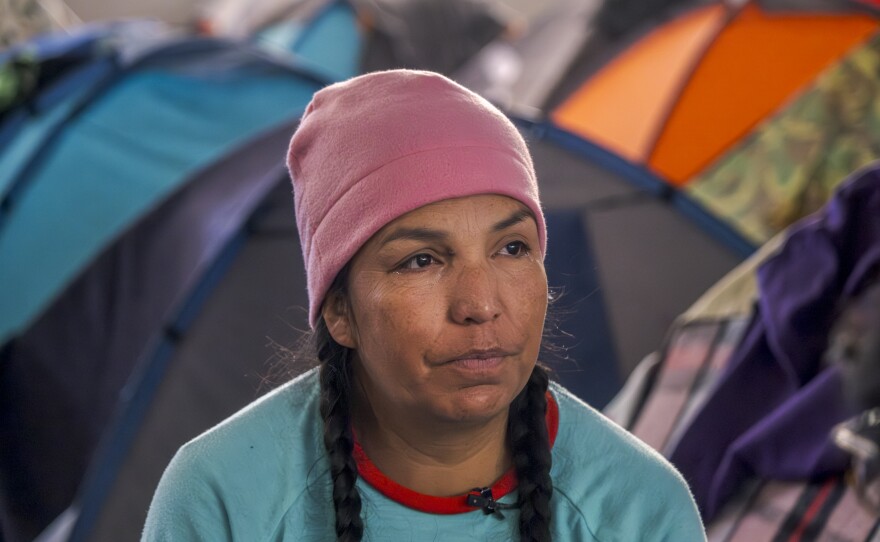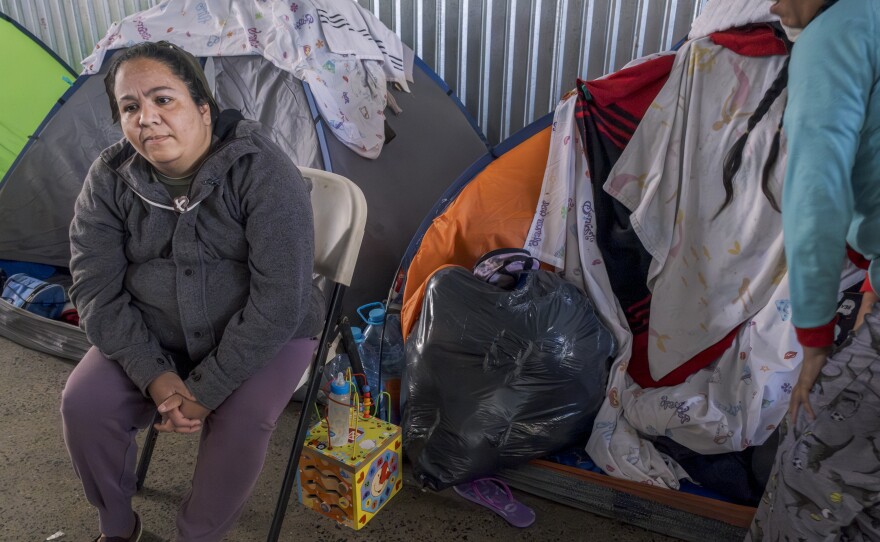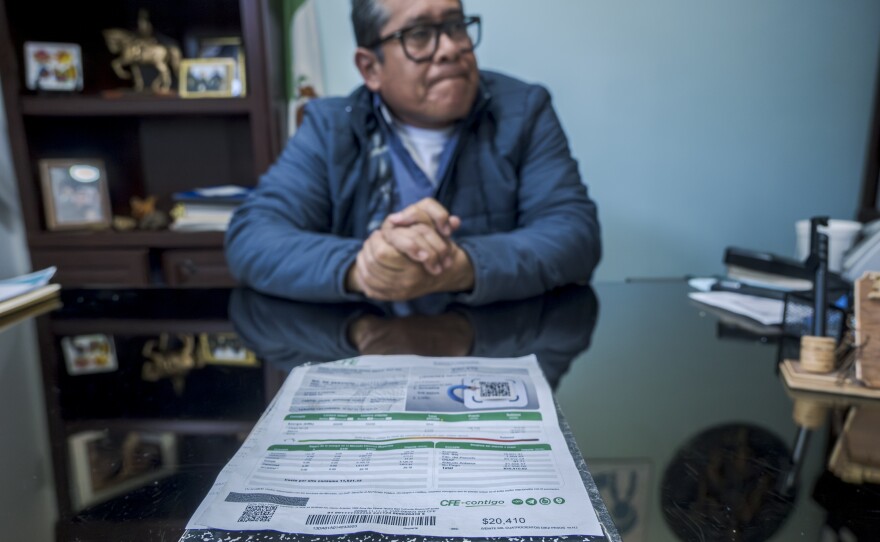It’s Christmas time in Tijuana’s Movimiento Juventud 2000 migrant shelter. Children play around the colorful, decorative tree while volunteers hang "Feliz Navidad" banners.
The parents, much like Mary and Joseph, are hoping for a room at the inn. They’re all asylum seekers who fled their home in search of protection in the U.S.
"Some of them have been here six or seven months," Jose Maria Garcia Lara, the shelter’s director, said in Spanish. "One family has been waiting more than 10 months."
They’re all using the CBP One mobile app. It allows asylum seekers to schedule appointments through U.S. Customs and Border Protection (CBP) to enter the United States. At least for now.
In June, President Joe Biden issued an executive action that makes most migrants who cross the border illegally ineligible for asylum. A move that essentially made CBP One the only way to access the U.S. asylum system.
"There are no other options," Garcia Lara said.
Now, with just over a month to go before Donald Trump takes office on Jan. 20, the asylum options could be reduced to none. Trump has vowed to "terminate” the app as part of what he’s promising will be an historic crackdown on immigration.
The app has been controversial since it was introduced in early 2023. There are only 1,450 CBP One appointments available each day, and demand for these appointments heavily outweighs the supply. As a result, the average wait time for an appointment is more than nine months, according to immigration officials in Tijuana.
Critics also point out that migrants without smartphones or internet access are shut out of the process. Those with some disabilities, or general lack of tech savviness are also unable to use the app.
Still, more than 860,000 individuals successfully scheduled appointments between January 2023 and October, according to the Department of Homeland Security (DHS).
Nonetheless, the already long odds for those in the Movimiento Juventud 2000 get longer as Jan. 20 draws ever closer.
Dozens of immigrant rights organizations have called on the Biden administration to expand the number of CBP One appointments available every day.
So far, those calls have been ignored. There are no current plans to increase appointments, CBP officials said.

Living in fear
"I’m praying to God every day for an appointment," said a Mexican asylum seeker KPBS is identifying as Flor in order to protect her identity.
Flor fled her home in the Mexican state of Michoacán after a relative molested her son and other family members threatened to beat her for reporting it to the police.
"I’m afraid for my son’s life," she said in Spanish. "Because we ran away and don’t want them to find us."
Like other Mexican migrants fleeing violence, Flor is terrified of being tracked down by the people she’s running from. She and her son have spent six months waiting for an appointment.
Flor said several families look at Jan. 20 with a sense of impending doom.
Approximately 110 families live in the shelter. Half of its residents are children. Parents told KPBS they are trying to giver their kids a safe and happy life.
"This is a sacrifice," said Blanca Isabel, another Mexican asylum seeker, in Spanish.
Blanca and her family fled their home state of Morelos after a local gang killed her son-in-law for failing to pay an extortion fee. His daughter, Blanca’s granddaughter, was born in Tijuana a month ago.
"She never met her father," Blanca said.
The family — which includes Blanca’s husband, their five children and three grandchildren — has spent the last four months trying to secure a CBP One appointment.

Other desperate families in the shelter gave up and decided to cross illegally. Smugglers charge as much as $14,000 per person to get into the United States. And hundreds have died trying to cross illegally — either by drowning in the ocean or getting lost in the mountains and deserts.
Even if they could afford it, Blanca doesn’t think her family could make that journey with a newborn. Their only option is to get an appointment before Trump ends the program.
"That’s what I’m most worried about right now," she said. "What will happen to us if there are no more appointments?"
A shelter's uncertain future
Garcia Lara, the shelter’s director, is also stressed. But for different reasons.
His shelter is on an extremely tight budget. So much so, that their electricity was abruptly shut off during the first week of December for failing to pay a $1,000 electricity bill.
"They didn’t even give us a warning," he said.

Lack of power left migrants without the ability to charge their cell phones, which prevented them from applying for CBP One appointments.
Power was only restored after the shelter received donations from two separate nonprofits — one based in Los Angeles and another based in Tijuana.
But Garcia Lara doesn’t know how he’ll pay the next bill.
"We have to figure something out," he said.
Trump’s call for mass deportations could send more deportees to Tijuana’s migrant shelters. But given they’re already struggling to care for the existing migrant population, shelter operators worry that a larger influx of people would overwhelm the system.
"We’re all very worried about what’s coming," Garcia Lara said.






